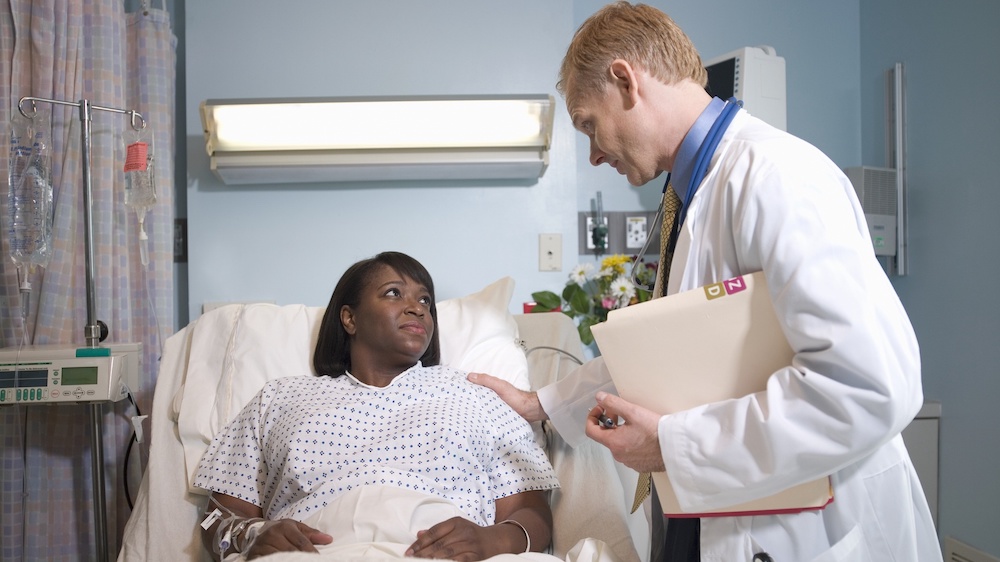If you’re interested in sharing your opinion on any cultural, political or personal topic, create an account here and check out our how-to post to learn more.
____
Written by Rashad Robinson, President for Color Of Change
____
Now, more than ever we need resources and access to information that will help save Black lives. In Brooklyn, a Black woman was left to fight for her life after being denied testing not once, not twice, but three times after her symptoms were not taken seriously by medical professionals.In Michigan, Black people made up 40% of coronavirus related deaths; in Louisiana 70% of coronavirus victims were Black.
COVID-19 is not an “equal opportunity” disease.
We need to address this pandemic through a racial equity lens. This includes collecting and reporting accurate, aggregate data of COVID-19 testing, rates of infection, and deaths by race and ethnicity.
— ACLU (@ACLU) April 21, 2020
Unfortunately, these stories are all too familiar and The numbers are only making it more clear — Black people bear the brunt of COVID-19’s economic and health impacts. As the disease continues to devastate our communities at exceptionally higher rates than white communities, access to healthcare and accurate information about COVID-19 could mean life or death. So, across the country, Black doctors are stepping up to help Black people find accurate information about the virus.
NYC has just published expanded data on covid-19 by race.
The picture has become even more stark.
In every category–cases, hospitalization & deaths–this disease is hitting African Americans & Latinos much harder.
A shocking indictment of inequality in our society. pic.twitter.com/dKWjrox7cJ
— Mark D. Levine (@MarkLevineNYC) April 17, 2020
If you’ve studied American medical history, getting sick or needing to go to the hospital might be daunting. To bust some of the common myths around the virus and help Black people protect themselves at home and in the hospital, Dr. Ruth Aramala released the “Black Patient’s Guide to COVID-19." Even tips as simple as asking for a COVID-19 test when you first arrive at a hospital or asking that a denial of a COVID-19 test be noted in your file could save you precious time while you’re sick. Getting advice about changing your toothbrush or bedding could save you from exposing more people to the virus once sick.
Historically, the United States’ healthcare system has always failed Black people. From the Tuskegee study that continued to kill Black people long after the study ended to the exploitation of Henrietta Lacks, legacies of discrimination and mistrust have put Black lives in danger. Today this pandemic is exposing the racial fault lines that have allowed centuries of structural racism to persist, leaving our communities with less access to healthcare and higher exposures to health dangers than the public at large.
Instead of putting protections in place to prevent these racist systems from continuing to oppress our communities, a second wave of data shows that Black people are being shortchanged even in testing, showing that they are drastically underserved in the effort to combat the spread. Other analyses show that doctors are less likely to refer Black people for testing when they show clear signs of infection.
Black people are being denied COVID-19 tests.
Black people are being denied COVID-19 tests.
Black people are being denied COVID-19 tests.
Black people are dying.
— KL Caldwell (@KiaLCaldwell) April 28, 2020
Not only are these practices driving the racial disparities in our health care system, they amplify a history of mistrust and misinformation. At the start of the pandemic, misinformation was widely circulated about Black people and coronavirus. Now, with racial data showing the disproportionate rate of deaths in Black communities, we must equip our communities with accurate information.
So this week in #TheBlackResponse to COVID-19, we’re following the lead of Black doctors, advocating for ourselves and holding healthcare leaders and companies accountable. Together we can turn these failures into the change we want to see in the world. Here are a few things we can do together:
1. Spread the word about The Black Patient’s Guide to COVID-19.
2. Sign the Color Of Change petition demanding that ventilator manufacturers let hospitals fix broken ventilators!
3. Write a message to insurance companies asking them to prioritize the health of Black people who are laid off.
____
Rashad Robinson is President of Color Of Change, the largest online racial justice organization in the country that designs winning strategies to build power for Black communities. Rashad appears regularly in major news media and as a keynote speaker nationally. You can follow Color of Change on Twitter.

